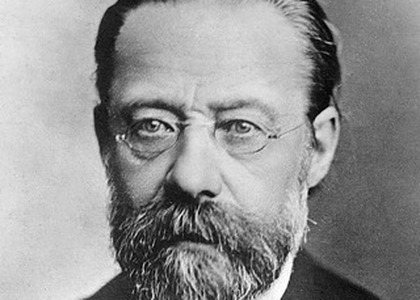> [Archived] Events

Bedrich Smetana 200th Anniversary Concert with the Prague Radio Symphony Orchestra conducted by Petr Popelka
The music of three Czech composers from different eras will be combined in a concert on the 12th of February 2024 by the Prague Radio Symphony Orchestra and its chief conductor Petr Popelka at Prague's Rudolfinum, Dvorak Hall.
Here's an interesting way to celebrate the 200 years since the birth of Bedrich Smetana, the first composer to use elements of Czech folk music in his creations.
The evening kicks off with Josef Suk's 'Fairy Tale', a suite for orchestra based on the composer's earlier incidental music for the play Radúz and Mahulena, a love story imagined by writer Julius Zeyer in which the two heroes must face various challenges set by the witch Queen Runa.
The second performance in the Rudolfinum programme will bring to your attention the excellent Iranian harpsichordist Mahan Esfahani. He will perform the piece "Standstill", actually a concerto for harpsichord and orchestra by Miroslav Srnka.
Mahan Esfahani originally studied in the USA at Stanford University, then studied harpsichord with Peter Watchorn in Boston and organ with Lorenzo Ghielmi in Milan. He studied with Zuzana Rù¾ièková, an important Czech harpsichordist, and Mahan Esfahani's connection to the Czech cultural scene was strengthened by composer Miroslav Srnka, who dedicated his concerto "Standstill" to him.
The concert will end with the String Quartet No. 1 in E minor "From My Life" by Bedøich Smetana, an orchestral version by George Szell. This Hungarian conductor gave memorable performances at the Prague State Opera, but is best known as a music director of the Cleveland Orchestra, which he conducted from 1946 until his death. In the USA, he was one of the promoters of the works of Bedøich Smetana. In his arrangement for Bedøich Smetana's String Quartet No. 1 in E minor, he succeeded in transfiguring the chamber music, using very intense orchestral colours without losing the intimacy of the original work.
Translated by Andreea Georgiana Bogdan,
University of Bucharest, Faculty of Foreign Languages and Literatures, MTTLC, year I
Corrected by Silvia Petrescu














